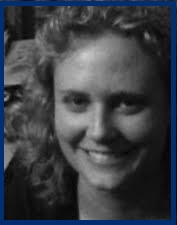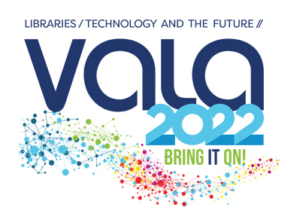Digital Skills: Developing? Adept? Or Proficient?
VALA2022 E-Poster
Leah Gustafson
- Digital Capability Adviser
- Griffith University Library
Jennifer Kemp-Smith
- Griffith University
C Hart
- University of the Sunshine Coast
Please tag your comments, tweets, and blog posts about this session: #vala2022
Abstract
While informational literacy will remain core business for libraries, Australian libraries are increasingly extending their scope of service to support digital literacy and skill development (Johnson 2020). Towards this end, Griffith University’s Digital Dexterity Self-Assessment Quiz measures and promotes digital literacy as a key skill by enabling users to self-assess their digital literacy. Development of the quiz was initiated in direct response to, and in alignment with, the Council of Australian University Librarians’ (CAUL) Digital Dexterity framework and initiative and reflects the Griffith Graduate Attributes.
The initial build was developed through collaborations between Griffith’s Digital Dexterity Champion librarian, a Digital Capability Adviser and a Learning Advisor. Users gain an understanding of the elements of digital literacy, as well as assess their own proficiency with certain digital skills. The quiz was designed to increase student awareness of the six areas of digital dexterity as defined by the CAUL Digital Dexterity framework. These areas were then grouped according to three main themes – living in the digital space, creating digital content, and working with data. Many digital tasks are required to navigate an increasingly digital world, and each of the themed sections within the quiz tests respondents’ knowledge and understanding around those tasks.
Questions utilise interactive features such as drag/drop, true/false and multiple-choice selections. Each page provides users with an opportunity to reflect on their own level of competency and comfort with the digital skill. At the completion of the quiz the pre-determined scoring system evaluates respondents’ skill level and assigns their score to a hierarchical level of developing, adept, or proficient. Links to both internal and external resources are provided to showcase opportunities for further learning.
The quiz was built using the Articulate 360 Storyline package and is delivered on the web via GitHub. Using GitHub has meant that both the quiz and the accompanying source files are freely available for all to access and, potentially, reuse. Griffith University Library has a strong commitment to digital skills enhancement and contribution to the community of practice through the CAUL Digital Dexterity initiative. Designed as an open access resource, the Digital Dexterity Self-Assessment Quiz contributes to digital skills enhancement as well as to the broader community through distribution as part of the Open Education Resources (OER) Commons.
The successful launch of the project was the result of a strong design thinking process, with particular investment in the ideation phase; ability to pivot mid-project as the initial software platform became unavailable, and ongoing commitment from stakeholders. To date, according to the Google Analytics monitoring the GitHub site, there have been over 2000 visitors since the launch in March 2021. With a goal towards continuous improvement and based on user feedback, the digital dexterity self-assessment quiz will continue to evolve and improve and offer students an engaging digital dexterity experience.
Griffith University’s digital dexterity self-assessment quiz is a resource that positions the library as key provider of digital literacy and foundational skills development.
Biography
 Leah Gustafson is a Digital Capability Adviser at the Griffith University Library supporting staff and students with their technology enquiries. She has a background in higher education teaching, digital development, creative industries, and science. Leah likes to focus on helping people improve their digital literacies to achieve their goals
Leah Gustafson is a Digital Capability Adviser at the Griffith University Library supporting staff and students with their technology enquiries. She has a background in higher education teaching, digital development, creative industries, and science. Leah likes to focus on helping people improve their digital literacies to achieve their goals
![]()
This work is licensed under a Creative Commons Attribution-NonCommercial-NoDerivs 3.0 Unported License

